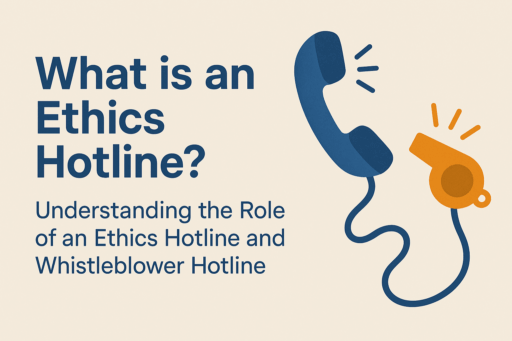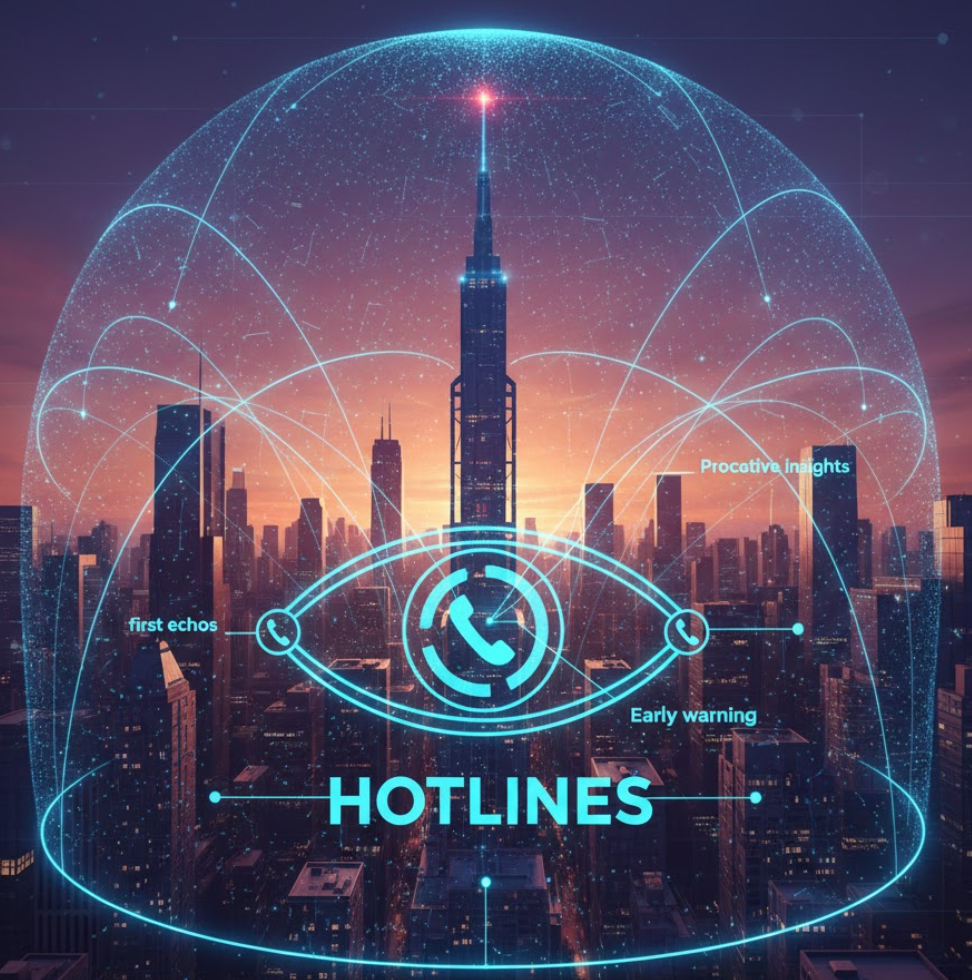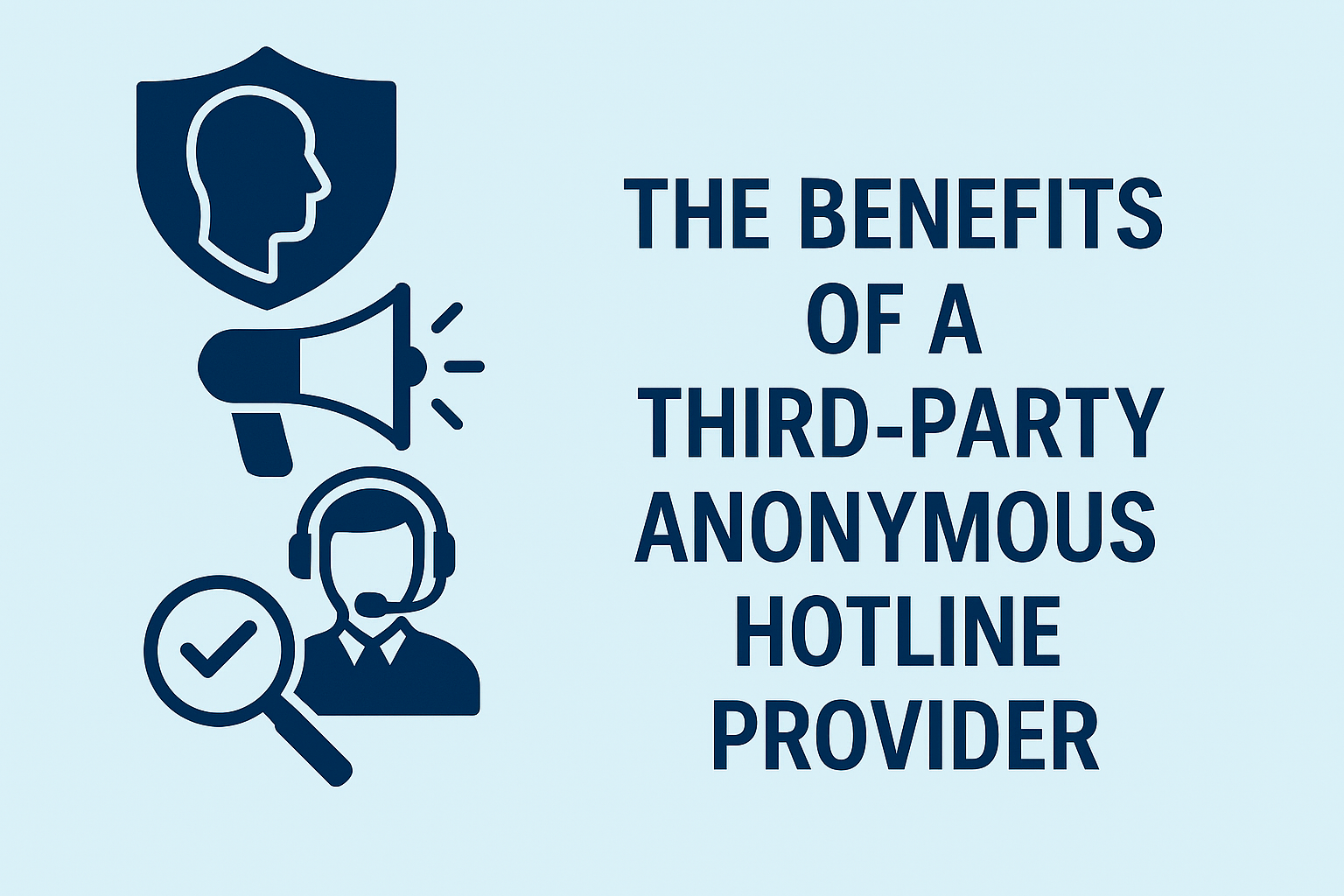
In today’s business environment, organizations are increasingly expected to operate with transparency, accountability, and integrity. Yet, even with well-designed compliance programs, workplace misconduct can occur—ranging from minor policy violations to serious issues such as fraud, harassment, safety violations, or corruption. This is where a ethics hotline becomes an essential tool for businesses looking to protect their culture, employees, and reputation.
In this article, we will break down what a ethics hotline is, how it works, and why it plays such a crucial role in corporate compliance and organizational trust.
Defining a Ethics hotline
A ethics hotline is a confidential reporting mechanism that allows employees, vendors, or other stakeholders to safely raise concerns about misconduct or policy violations within an organization. It serves as a bridge between individuals who may have critical information and leadership teams who need awareness to take corrective action.
The hotline can take different forms:
- A dedicated phone line operated by an independent third-party provider
- A secure online reporting portal
- Email or mobile app submission systems
- Sometimes, even a combination of these channels
What matters most is that the ethics hotline ensures confidentiality, accessibility, and trust. Employees should feel safe reporting concerns without fear of retaliation.
Why Companies Need a Ethics hotline
Implementing a ethics hotline is more than a compliance checkbox. It provides business value in several important ways:
- Encouraging Early Detection of Issues
Employees are often the first to notice unethical behavior. A hotline gives them a direct and confidential path to share information before problems escalate into major scandals, lawsuits, or financial losses. - Promoting a Speak-Up Culture
A visible ethics hotline signals to employees that leadership takes compliance and integrity seriously. It tells the workforce: “We want you to raise concerns, and we will protect you if you do.” - Reducing Legal and Financial Risks
Fraud, harassment, and regulatory violations can carry steep penalties. By providing a ethics hotline, companies create a monitoring system that helps identify risks before regulators or auditors do. - Enhancing Trust and Reputation
Stakeholders—whether employees, investors, or customers—are more likely to trust organizations that establish transparent accountability tools. An open channel for reporting fosters long-term credibility.
How a Ethics hotline Works
At its core, the reporting process for a ethics hotline is straightforward:
- Submission of Report
An employee or stakeholder contacts the ethics hotline (via phone, web, or app) to report a specific concern. - Confidential Documentation
The report is logged in a secure system that captures details while protecting the reporter’s anonymity, if requested. - Independent Review
In many cases, an independent third-party provider manages the hotline. This further reassures employees that reports will not be intercepted or tampered with by company insiders. - Investigation by Company Leadership
After the report is submitted, company leadership or an internal compliance team reviews it, launches an investigation, and determines an appropriate course of corrective action. - Feedback (Where Possible)
Many systems allow two-way anonymous communication, meaning employees can track progress or provide additional information without revealing their identity.
Key Features of a Successful Ethics hotline
Not all hotlines are created equal. For maximum effectiveness, an organization’s ethics hotline should:
- Guarantee Anonymity: Whistleblowers need assurance that their identity will remain protected.
- Be Independently Operated: Third-party administration increases credibility and employee trust.
- Offer Multiple Languages and Channels: A diverse workforce should have equitable access to reporting tools.
- Provide 24/7 Availability: Misconduct doesn’t always occur during business hours—reporting shouldn’t be limited either.
- Ensure Secure Data Handling: Confidential information must be protected to reduce legal and reputational risks.
By implementing these best practices, companies reinforce their commitment to ethical accountability.
Myths About Ethics hotlines
Despite their value, some organizations hesitate to launch a ethics hotline because of misconceptions. Let’s clear up a few:
- “Few employees will use it.” In reality, surveys show that hotlines are one of the most common and effective reporting channels in high-performing compliance programs.
- “It will encourage frivolous complaints.” While false reports can happen, strong policies and professional case management keep investigations fair and credible.
- “We don’t need one if we have HR.” Traditional HR reporting channels can feel unsafe to employees fearing retaliation. An independent ethics hotline provides a neutral, trusted alternative.
Compliance, Law, and Regulatory Expectations
In many industries, having a ethics hotline is not just best practice—it’s a regulatory requirement. For example:
- Sarbanes-Oxley Act (SOX): Publicly traded companies in the U.S. are required to establish confidential processes for reporting financial misconduct.
- Department of Justice Guidance: Strong compliance programs must include effective reporting mechanisms as part of internal controls.
- Global Data Protection Requirements: Many jurisdictions require careful handling of whistleblower data, making professional hotline administration even more critical.
By proactively offering a ethics hotline, organizations demonstrate compliance readiness and reduce exposure to regulatory enforcement.
Conclusion: The Strategic Value of a Ethics hotline
A ethics hotline is more than just a compliance obligation—it is a powerful tool for strengthening organizational integrity. By providing employees and stakeholders with a safe, confidential way to report concerns, companies can detect issues early, build a culture of transparency, and enhance their reputation in the marketplace.
In an era where trust and accountability matter more than ever, implementing a professional ethics hotline is not just smart compliance—it’s smart business.
gation—it is a powerful tool for strengthening organizational integrity. By providing employees and stakeholders with a safe, confidential way to report concerns, companies can detect issues early, build a culture of transparency, and enhance their reputation in the marketplace.
In an era where trust and accountability matter more than ever, implementing a professional ethics hotline is not just smart compliance—it’s smart business.
Learn more about our anonymous compliance hotline solutions.
Frequently Asked Questions About Ethics Hotlines and Whistleblower Hotlines
- What is the difference between an ethics hotline and a whistleblower hotline?
The terms ethics hotline and whistleblower hotline are often used interchangeably. Both provide a confidential reporting channel for employees and stakeholders to raise concerns about misconduct. “Ethics hotline” emphasizes promoting ethical culture, while “whistleblower hotline” focuses on compliance and legal protections. - Are hotlines anonymous?
Yes, most hotlines allow complete anonymity. Employees can submit concerns without disclosing their name, depending on preference and jurisdiction. Many modern hotline providers also offer two-way anonymous communication so investigators can follow up with the whistleblower securely. - Why should companies use a third-party hotline instead of handling reports internally?
Third-party hotlines increase trust and credibility. Employees may hesitate to report misconduct directly to HR or leadership if they fear retaliation. An independent provider ensures neutrality, secure recordkeeping, and proper escalation of cases. - What types of issues can be reported through an ethics hotline?
A whistleblower hotline can be used to report:
• Fraud and financial misconduct
• Harassment or discrimination
• Workplace safety violations
• Conflicts of interest
• Code of conduct violations
• Regulatory or legal concerns - Is an ethics hotline required by law?
In some cases, yes. Public companies in the United States, for example, are required under the Sarbanes-Oxley Act (SOX) to provide employees with a confidential channel for reporting financial misconduct. Even for organizations not legally required, having a whistleblower hotline is considered a best practice for compliance and risk management.
Want to learn more about hotlines? Visit our page here and click on “hotlines” from the navigation bar.
See what the Harvard Law School Forum on Corporate Governance has to say here.
Learn what a hotline is here.
Read case studies here. Compare an ethics hotline to HR reporting here. Learn how a hotline protects employees from retaliation here. Learn how a hotline service for a small organization is possible here. Learn 6 critical keys to choosing an case management platform here.
Reach Us
Red Flag Reporting
P.O. Box 4230, Akron, Ohio 44321
Tel: 877-676-6551
Fax: 330-572-8146



